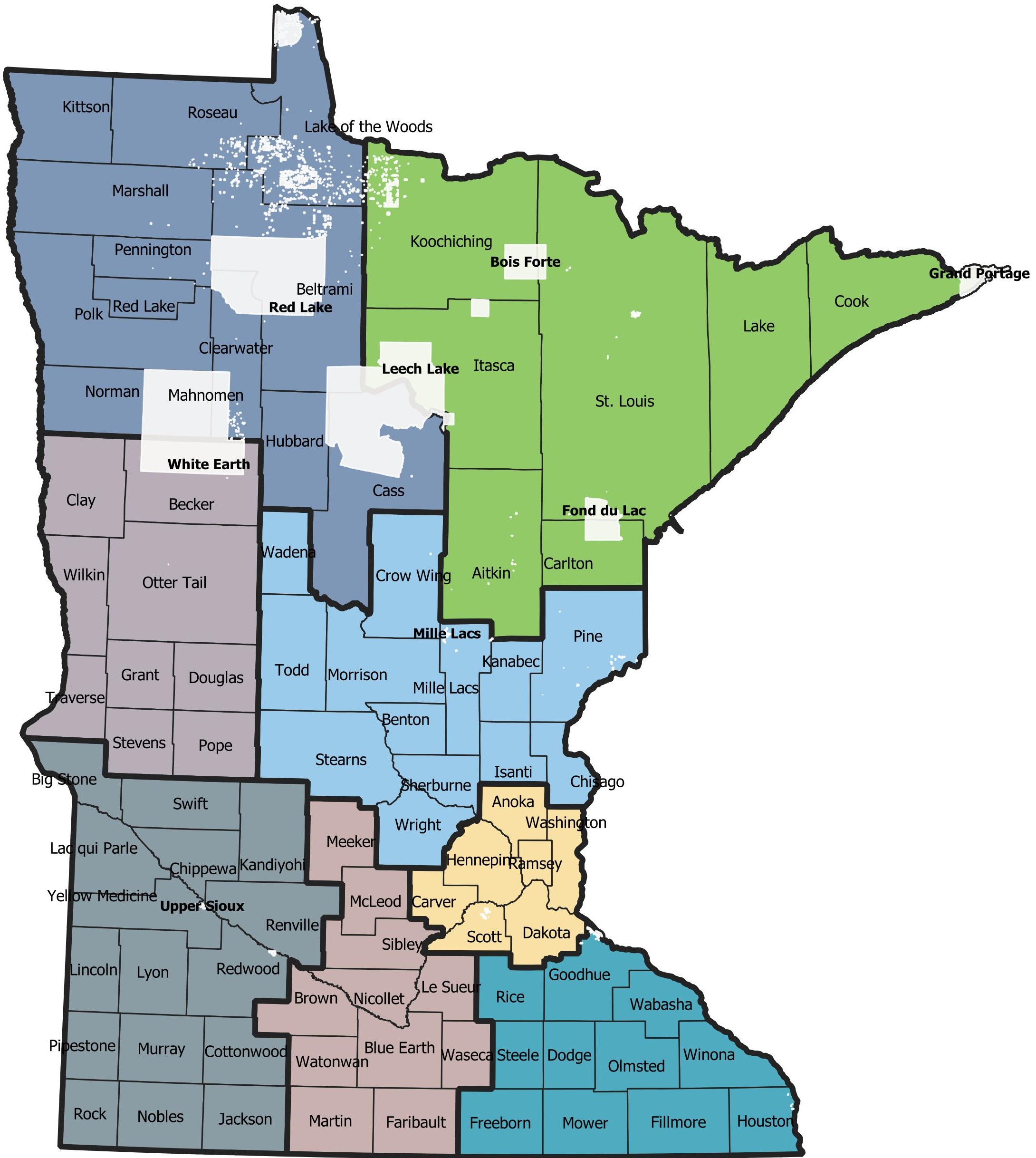Contact Info
Regional Behavioral Health Coordinators (RBHC)
Regional Behavioral Health Coordinators (RBHC) (PDF)
Updated 9/1/2022
RBHCs
Janet Yeats, MA, LMFT
Metro/SE RBHC
Janet.R.Yeats.Contractor@state.mn.us
Kevynn Schumacher, MS
West Central & Central RBHC
Kevynn.Schumacher.Contractor@state.mn.us
Hanna Marzinske, MBA
Southwest & South Central RBHC
Hanna.Marzinske.Contractor@state.mn.us
Luke Campbell, MA
NW/NE RBHC
Luke.Campbell.Contractor@state.mn.us

Why address behavioral health in disaster response and recovery?
A range of mental health and chemical abuse (behavioral health), and stress management problems may surface in the early stages of an emergency. These may continue to emerge among the public and among professionals who respond to an event. Some reactions include confusion, an inability to concentrate, anxiety, depression, phobias, sleep disturbance, panic disorders, acute or post-traumatic stress disorder (PTSD), depression, suicidal behaviors, rage, and rigidity.
What are the Regional Behavioral Health Coordinators (RBHC)?
Regional Behavioral Health Coordinators are disaster behavioral health subject matter experts who engage in outreach and educational activities within each of the public health regions across the state to facilitate the resiliency and recovery of survivors and responders from disasters, terrorism, and public health emergencies.
Some of the services provided by RBHC’s will include, but are not limited to:
- Provision of psychoeducation, Psychological First Aid (PFA), Skills for Psychological Recovery (SPR) intervention services, and mental health triage and referral.
- Development of specific COVID-19 disaster behavioral health response and recovery training, resources, and toolkits.
- Training in Psychological First Aid (PFA), Stress Inoculation, Skills for Psychological Recovery (SPR), stress management, and other lay-person interventions to build disaster behavioral health regional response and recovery capacity.
- Provide consultation and guidance based on subject matter expertise to local public health, tribal health, and their community advisory committees, and emergency response staff in assessing needs, and developing and implementing approaches to increase local and regional disaster behavioral health capacity.
- Identify new and support existing connections between public health behavioral health partners and resources.